Peter Sturm est un Acteur né le 24 aout 1909 à Autriche-Hongrie

Josef Michel Dischel (24 August 1909 – 11 May 1984), known by his adopted stage name Peter Sturm, was an Austrian and an East German actor.
Dischel was born into a religious Jewish family in Vienna. His father was a tailor, originally from the Polish regions of the Habsburg Empire, and died in 1915. His mother was born in Hungary.
Dischel had taken up an apprenticeship as a textile merchant, but abandoned it. He then decided to become an actor, and began taking drama lessons from renowned Austrian performer Raoul Aslan. While studying, he worked as a radio mechanic. After completing his studies, he assumed the stage name Peter Sturm.
[...]Voir plus...
Source : Wikidata
Peter Sturm

- Infos
- Photos
- Meilleurs films
- Famille
- Personnages
- Récompenses
Nom de naissance Josef Michel Dischel
Naissance 24 aout 1909 à Autriche-Hongrie
Mort 11 mai 1984 (à 74 ans)
Naissance 24 aout 1909 à Autriche-Hongrie
Mort 11 mai 1984 (à 74 ans)
Biographie
Early lifeDischel was born into a religious Jewish family in Vienna. His father was a tailor, originally from the Polish regions of the Habsburg Empire, and died in 1915. His mother was born in Hungary.
Dischel had taken up an apprenticeship as a textile merchant, but abandoned it. He then decided to become an actor, and began taking drama lessons from renowned Austrian performer Raoul Aslan. While studying, he worked as a radio mechanic. After completing his studies, he assumed the stage name Peter Sturm.
[...]Voir plus...
Le plus souvent avec
Filmographie de Peter Sturm (16 films)
Acteur

Martin Luther (1983)
, 7h30Genres Drame, Biographie, Historique
Acteurs Ulrich Thein, Renate Blume, Hannjo Hasse, Jürgen Frohriep, Peter Sturm
Note73%





Première partie Der Protest (La Protestation)
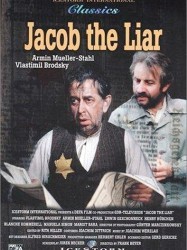
Jacob le menteur (1975)
, 1h36Réalisé par Frank Beyer
Origine Tchecoslovaquie
Genres Drame, Guerre, Comédie, Comédie dramatique, Historique
Thèmes Religion, Politique, Religion juive
Acteurs Vlastimil Brodský, Erwin Geschonneck, Henry Hübchen, Blanche Kommerell, Peter Sturm, Dezső Garas
Rôle Leonard Schmidt
Note70%





L'histoire, tragique, se déroulant pendant la Seconde Guerre mondiale, est inspirée par le récit du père de l'auteur du scénario.
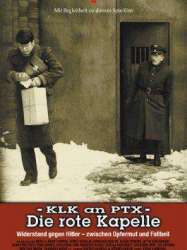 , 1h41
, 1h41Réalisé par Horst E. Brandt
Genres Drame, Historique
Thèmes Espionnage, Politique
Acteurs Jutta Wachowiak, Karin Lesch, Siegfried Weiss, Günther Simon, Peter Sturm, Rudolf Ulrich
Rôle Krapotschkin
Note73%





After Hitler's rise to power in 1933, a group of regime opponents from various backgrounds consolidated under the leadership of Harro Schulze-Boysen and Arvid Harnack. They gather intelligence and pass it on to other countries. After the outbreak of the Second World War, and especially after the German invasion of the Soviet Union, they intensify their work. In August 1942, the Gestapo arrests Boysen and soon after cracks down on the spy ring.
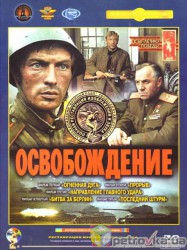
Libération (1969)
, 1h10Réalisé par Youri Ozerov
Genres Drame, Guerre, Romance
Thèmes Politique, Politique
Acteurs Nikolay Olyalin, Larisa Golubkina, Boris Seidenberg, Vsevolod Sanaïev, Vasily Shukshin, Fritz Diez
Rôle Walter Model.
Note75%





Le cinquième épisode, intitulé Le Dernier Assaut, fait suite à La Bataille de Berlin et met en scène les combats qui ont eu lieu dans Berlin ainsi que les événements qui se déroulés dans le Führerbunker jusqu'à la capitulation sans conditions du gouvernement nazi :

Réalisé par Werner W. Wallroth
Genres Comédie, Historique, Romance
Thèmes Politique, Guerres napoléoniennes, Révolution française
Acteurs Manfred Krug, Rolf Herricht, Peter Sturm, Carmen-Maja Antoni, Eberhard Cohrs, Karl-Ernst Sasse
Rôle police chief (voice)
Note61%





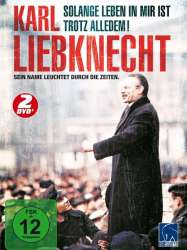
Karl Liebknecht (1965)
, 1h54Réalisé par Günter Reisch
Genres Drame, Biographie, Historique
Thèmes Politique, Politique
Acteurs Mikhaïl Oulianov, Albert Hetterle, Jutta Hoffmann, Erika Dunkelmann, Zofia Mrozowska, Siegfried Weiss
Note72%





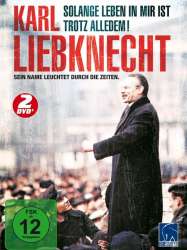
Solange Leben in mir ist (1965)
, 1h54Réalisé par Günter Reisch
Genres Drame
Thèmes Politique
Acteurs Albert Hetterle, Erika Dunkelmann, Siegfried Weiss, Hans Finohr, Adolf Fischer, Werner Dissel
Note72%





The film opens in Berlin in 1914, as Germany is preparing for World War I. Liebknecht (Schulze) receives a call from a fellow lawyer and revolutionary, Mr. Rauch, that documents have been found proving the German heavy arms industry's secret involvement in the buildup to the war. He brings these documents to a meeting of the Reichstag, accusing Gustav Krupp and his company of bribing officials to release military secrets. In addition to this, Krupp and his company wrote to ask the French media to state that the French military has twice as much artillery as they actually possess so that they may provoke a surge in militarism.
[...]Voir plus...

The Heyde-Sawade Affair (1963)
, 1h41Acteurs Peter Sturm
After being responsible for the murder in round about 100.000 so called "euthanasia" cases in Nazi Germany till 1945, SS psychiatrist and physician Dr. Werner Heyde has lived uncovered under the pseudonym "Fritz Sawade" after the war in Northern Germany's Schleswig-Holstein. His true identity remains unclear over fourteen years occupied with medical expertises for the post-war Western Germany's justice. His wife had declared her husband as dead and received for this time a pension for a widow of a psychology professor.
[...]Voir plus...
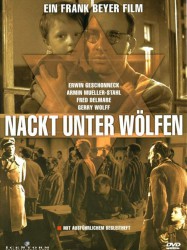
Nu parmi les loups (1963)
, 1h56Réalisé par Frank Beyer
Genres Drame, Guerre
Thèmes Politique, Religion, Politique, Religion juive
Acteurs Erwin Geschonneck, Armin Mueller-Stahl, Viktor Avdyushko, Peter Sturm, Zygmunt Malanowicz, Werner Dissel
Rôle Rose
Note71%





Février 1945, dans le camp de concentration de Buchenwald. Un prisonnier polonais introduit en secret un enfant de trois ans. Le Comité International Clandestin, une organisation illégale composée de résistants communistes de diverses nationalités, décide de faire passer l'enfant durant un transport vers un autre camp. Höfel et Kropinski, des prisonniers qui travaillent dans l'entrepôt, désobéissent et cachent l'enfant. Sa découverte par les SS entraînerait inévitablement la mort de l'enfant. Il est d'abord caché dans un placard de l'infirmerie puis logé dans la porcherie.
[...]Voir plus...
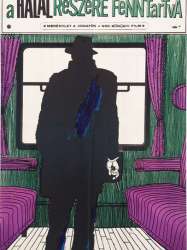
Reserviert für den Tod (1963)
, 1h25Réalisé par Heinz Thiel
Genres Drame, Thriller, Policier
Thèmes Espionnage, Politique
Acteurs Hannjo Hasse, Peter Sturm
Rôle Zugschaffner
Note62%





Former East German engineer Erich Becker had been lured to West Germany by promises of a high reward. Now residing in Stockholm, he is recalled to serve as a spy in the East. He is to convince Dr. Jadenburg to flee from the GDR with the help of his daughter Hanna, who works for the West. While travelling on the train with Hanna, he is told that he is also to murder another agent who betrayed and now works for the Stasi. The traitor is revealed to be a former friend of Becker, Harry Korb. Becker cannot bring himself to kill Korb when they meet.
[...]Voir plus...

Auf der Sonnenseite (1962)
, 1h41Réalisé par Ralf Kirsten
Genres Comédie, Musical, Romance
Thèmes Musique
Acteurs Manfred Krug, Rolf Herricht, Peter Sturm, Rolf Römer, Carola Braunbock, Karl-Ernst Sasse
Rôle Pabst
Note62%





Martin Hoff, a steel smelter and an amateur actor and Jazz singer, is sent to a drama school by his factory's committee. Due to his troublesome conduct, he is expelled. Hoff meets a young woman called Ottilie who is unimpressed by him; he bets with his friends that he shall manage to charm her. Hoff begins to work in the construction site where she serves as a group manager, although she has troubles enforcing her will on her male subordinates. He only has success with her after director Jens Krüger guides him to become a diligent laborer.
[...]Voir plus...

Professor Mamlock (1961)
, 1h40Réalisé par Konrad Wolf
Genres Drame
Thèmes Religion, Politique, Religion juive
Acteurs Wolfgang Heinz, Hilmar Thate, Peter Sturm, Ulrich Thein, Manfred Krug, Kurt Jung-Alsen
Rôle Dr. Hirsch
Note70%





Professor Mamlock, a respected Jewish surgeon, is certain that the Weimar Republic would survive the political crisis of the early 1930s. He disapproves of his son, Rolf, a communist activist who openly opposes the Nazis. When Hitler rises to power, Mamlock loses his work and his dignity. Realizing the mistake he made by being politically apathetic, Mamlock commits suicide. The film ends with his dead face blending away from the screen, on which appears the inscription: "there is no greater crime than not wanting to fight when fight one must."

Kein Ärger mit Cleopatra (1960)
, 1h23Genres Drame
Thèmes Mise en scène d'un animal, Mise en scène d'un cochon
Acteurs Maly Delschaft, Peter Sturm, Carola Braunbock, Günther Simon, Sabine Thalbach
Rôle Mathias Kahlow
The farm of the Kahlow family is struck by disaster: although it mated with neighbor Grossig's white swine, their white sow delivered black piglets, a sinister omen. The old Grandmother Kahlow interprets this as a sign from heaven not to join the nearby Agricultural Cooperative, although her grandson Claus - who wants to marry Grossig's daughter, Irma - wishes them to do so. Grossig supports her, and declares the piglets to be "unchristian", although the village priest resents that. But then, Father Melcior is also afflicted by the phenomenon: his sow, Cleopatra, delivers black piglets.
[...]Voir plus...
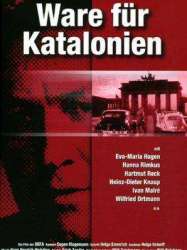
Ware für Katalonien (1959)
, 1h39Genres Drame, Policier
Acteurs Peter Sturm, Manfred Krug, Fritz Diez, Werner Dissel, Carola Braunbock, Margot Ebert
Rôle Mr. Dupont
Note66%





At 1959, the People's Police notices a strange occurrence: the local demand for optical instruments increases, while the orders from abroad sharply decrease. Several detectives launch an investigation, revealing that a West German criminal named Hasso Teschendorf has been forging documents and using them to illegally obtain the goods, which he sold to the Spanish Army and to customers in Barcelona. After a long hunt, the smuggler is arrested just before he manages to flee to West Berlin.
 Connexion
Connexion


